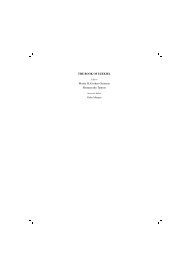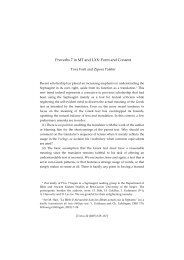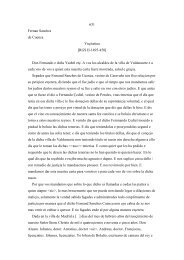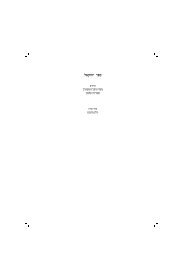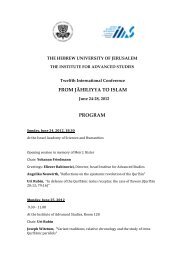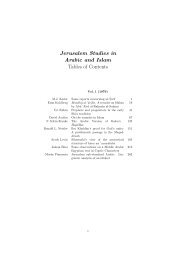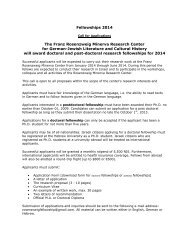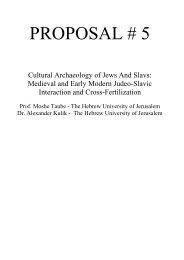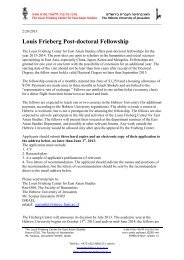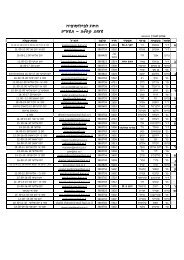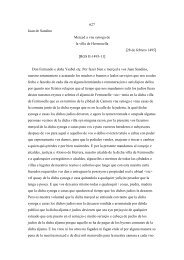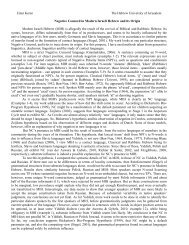Baber Johansen
Baber Johansen
Baber Johansen
Create successful ePaper yourself
Turn your PDF publications into a flip-book with our unique Google optimized e-Paper software.
40<br />
use their legal reasoning (ijtihād) to establish legal norms. Such rules do<br />
not oblige those jurists who do not approve of the reasoning that led to<br />
their formulation. In other words, jurists can produce norms only in those<br />
fields on which they cannot reach consensus and the norms thus<br />
produced remain objects of dissent. Fiqh is, therefore, characterized by a<br />
high degree of dissent and normative pluralism between the schools of<br />
law and within each of them and by a continuously growing field of<br />
embattled norms that enlarge, in turn, the realm of ijtihÁd. The control<br />
that the jurists of different schools and opinions exert over each other’s<br />
norm suggestions fulfills at least two functions: on the one hand, it puts<br />
into place a system of checks and balances, the purpose of which is to<br />
prevent individual scholars from claiming the authority of the divine law<br />
for their individual opinions and imposing them on other jurists; on the<br />
other, it keeps alive a constant debate about the religious meaning of the<br />
precepts and ordinances of the law. This debate is a constant resource of<br />
the renewal of religious meaning of institutions, customs and practices.<br />
Epistemological skepticism also determines the status of the judiciary’s<br />
judgment. The judge’s decision can never claim to represent the truth of<br />
the facts because the judge can be deceived by the witnesses or the<br />
parties. His reasoning does not protect him from error. The authority of<br />
the judgment rests entirely on the judge’s observation of the prescribed<br />
procedure, not on the material aspects of his decisions. The Muslim<br />
jurists, therefore, develop, in the eighth century of the common era, the<br />
distinction between the exterior and the interior forum. The judge cannot<br />
take God’s place. He cannot impose his erroneous judgment as a<br />
religious truth on the condemned person. The truth is a matter that is<br />
decided between the believer and his Lord (baynahu wa-bayna rabbihi),<br />
the qāÃī’s judgment enjoys only a technical, procedural and judicial<br />
authority and does not bind the believer’s conscience. 96



